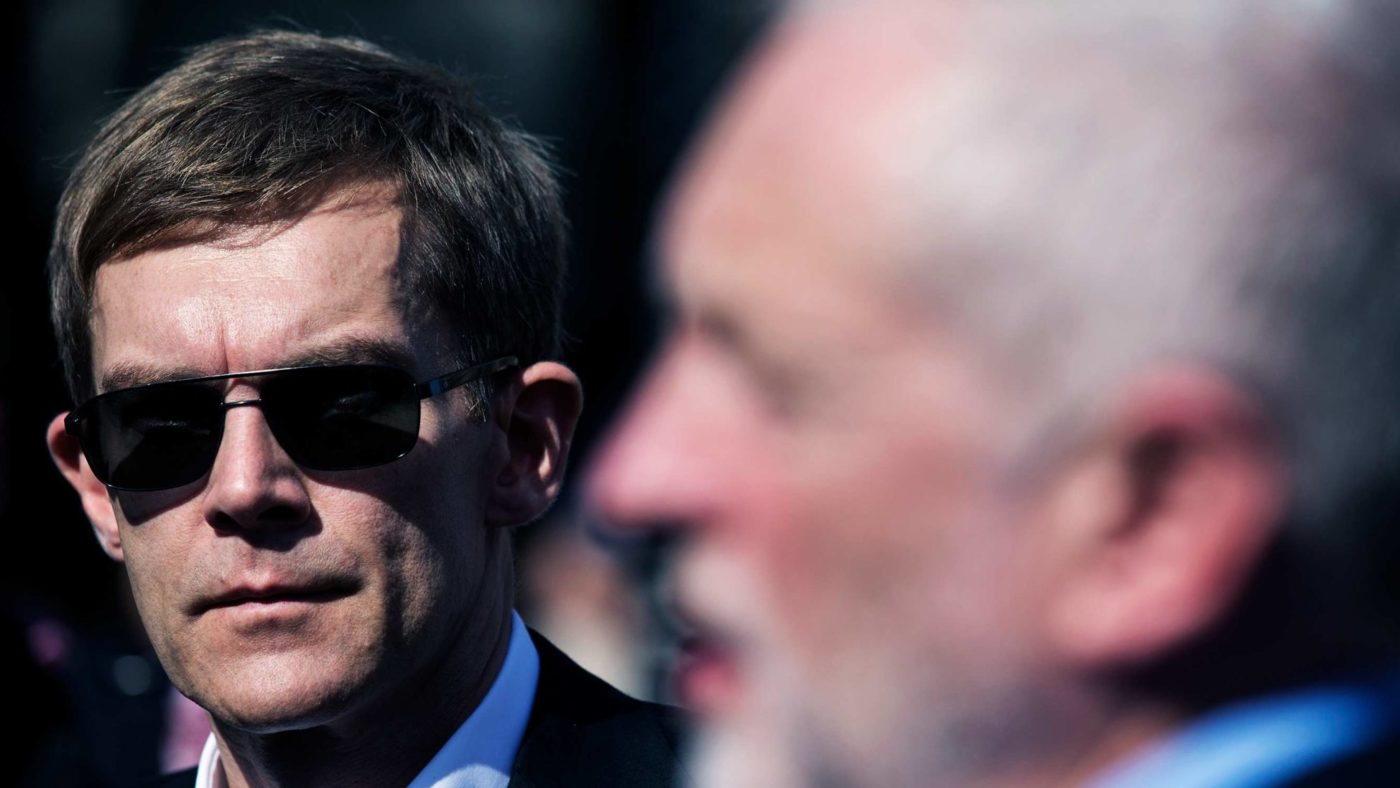Today marks 30 years since the fall of the Berlin Wall. For most Europeans it was a moment of elation, as the forces of global communism seemed to physically disintegrate on their TV screens.
And though the following three decades have, to put it mildly, had their ups and downs, no serious observer would claim Europe is not safer and more prosperous than when half the continent was under the yoke of Soviet totalitarianism.
For some, though, the transfer of swathes of Europe to liberal democracy and a market-based economy was no triumph. Far from a crumbling dystopia, East Germany had been a place of “full employment, social equality, cheap housing, transport and culture”, not to mention “one of the best childcare systems in the world”.
This dewy-eyed assessment of the former GDR comes not from some crusty Marxist academic, but Seumas Milne, the public school revolutionary who could soon find himself in 10 Downing Street as arguably Jeremy Corbyn’s most influential adviser.
It is just one thread in the tapestry of anti-Western, pro-communist writing that is Milne’s life’s work. In another of his Guardian columns , for instance, we learn that “for all its brutalities and failures, Soviet communism delivered rapid industrialisation, mass education, job security and huge advances in social and gender equality”.
Though perhaps not as effusive as Milne about the joys of collectivisation, Corbyn has certainly shared a soft spot for the Soviet Union. As a backbencher he once lauded the “far greater nursery provision” available in the USSR and came up with a bizarre petition for a “full rehabilitation of Leon Trotsky”. That’s to say nothing of his and John McDonnell’s unstinting support for Cuba’s dictatorship and the regime in Venezuela.
Yet more worrying is Corbyn’s attitude to the US. In 2011 he argued that “since World War Two the big imperial force has been the United States”, and claimed that it was Nato who instigated the Cold War – a view very much shared by Milne. The often repeated Labour lines about US corporations taking over the NHS and a ‘Trump trade deal’ stem not just from antipathy to the current US president, but the obsessive anti-Americanism at the heart of the Corbyn project.
This is more than just an arcane matter of historical revisionism, of course. It is a skewed view of the past which leads directly to the Labour leadership’s current attitude to Putin’s Russia. It was not some attempt at balanced judgment that saw Corbyn parrot Kremlin propaganda about the Salisbury attacks, but a view of Moscow as a countervailing force against Western aggression – always framed as “imperialism” in the language of the far left.
However, given the subject matter may seem esoteric and Milne is far from a household name, is there much point in trying to invoke the Soviet Union to attack Corbyn’s Labour?
We had a chance to put that proposition to the test earlier this week, when Boris Johnson launched the Tory campaign by comparing Labour’s attitude to the wealthy to Stalin’s repression of the kulaks.
The problem was not just that the comparison was far-fetched, but that nine out of 10 voters probably had no idea what he was talking about. It is strange though that Johnson referencing Stalin attracts more opprobrium than Corbyn appointing a living, breathing Stalinist – Andrew Murray – to a key role on the Labour campaign.
Rather than engaging in obscure historical references, the most effective approach is to point out how Mr Corbyn’s views and those of his close advisers threaten both our international alliances and our national security. That is not scaremongering, but a matter of record.
Or there is the even blunter alternative offered by the former Labour minister Ian Austin, who described his one time leader thus:
“I don’t think he’s a patriot, I don’t think he loves this country. He always picks this country’s enemies.”
Click here to subscribe to our daily briefing – the best pieces from CapX and across the web.
CapX depends on the generosity of its readers. If you value what we do, please consider making a donation.


